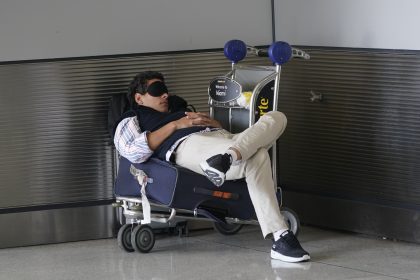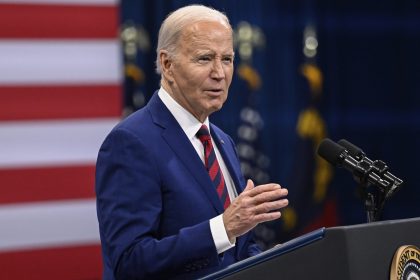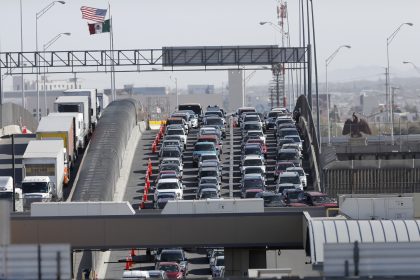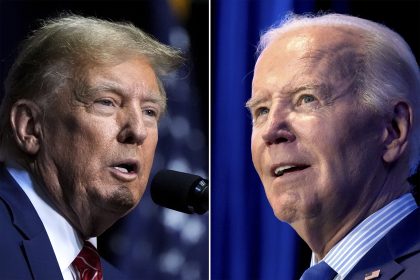Majority Of Large Employers Have Concerns About ‘Medicare For All’ Proposals, Survey Finds

WASHINGTON – A majority of large employers believe the Medicare for all proposals being touted by some White House aspirants would lower the number of uninsured in the United States, but at a cost of higher taxes and a decline in the quality of health care, a new survey has found.
The survey, conducted in May and June by the National Business Group on Health, incorporates answers from 147 large employers including in health care fields like insurance, pharmaceutical and medical products and health care providers, as well as banking and finance, technology, telecommunications and manufacturing.
Forty-nine percent of the nonprofit’s members responded.
Nearly three-quarters, or 72%, of respondents said that if some kind of Medicare for all plan were implemented, it would decrease the number of uninsured individuals.
However, 81 percent said the plan would increase tax rates, while 69% said such a plan would put the brakes on continued innovation in health care delivery and 56% said Medicare for all would decrease health care quality.
“There’s just quite a lot of concern about employers and the devil is in the details about whether these proposals would actually lead to improving cost and quality outcomes for covered family members,” said Ellen Kelsay, chief strategy officer at the National Business Group on Health, during a press briefing that accompanied the release of the survey results.
“Medicare for all” is a catch-all phrase representing a variety of health coverage proposals that would do everything from establish a national health insurance program with no competition to create a public, Medicare-like option for sale on the individual exchanges.
For several progressives running for the Democratic presidential nomination, including Sens. Bernie Sanders, I-Vt., Elizabeth Warren, D-Mass., and Kamala Harris, D-Calif., the prospect of Medicare for all is almost a panacea — in fact in recent days, Sanders has doubled down and made the proposal the primary focus of his campaign.
But as Drs. Kevin Schulman and Arnold Milstein pointed out in a recent article in the Journal of the American Medical Association, “finding a policy approach that insures more individuals while attenuating projected increases in health care spending remains a goal that has been elusive for more than 5 decades of U.S. policy making.”
The concerns voiced in the National Business Group on Health survey come as many health industry groups seek to stop momentum for the plans from building as Democratic presidential candidates advocating for Medicare for all criss-cross the country.
For instance, the American Hospital Association has said creating a government-run, Medicare-like health plan on the individual exchange could create the largest ever cut to hospitals – nearly $800 billion – and be disruptive to the employer-sponsored and non-group health insurance markets, while resulting in only a modest drop in the number of uninsured as compared to the 9 million Americans who would gain insurance by taking advantage of building upon the existing public/private coverage framework.
“This coverage proposal would enroll significantly fewer people than a single-payer model, and yet the reimbursement cuts would be catastrophic,” the association said.
The organization has also said that it is “deeply concerned” that a single-payer model would seriously distract from the important delivery system reform work currently underway among its members.
“Hospitals and health systems have invested billions of dollars in technology and delivery system reforms to improve care, enhance quality and reduce costs,” the association has said. “Moving to a single-payer model could stymie these efforts by, at best, diverting attention and, at worst, being deemed irrelevant if the government can simply ratchet down provider rates to achieve spending objectives.”
Brian Marcotte, president and CEO of the National Business Group on Health, said in a written statement that the current health care landscape is “a new frontier” for employers.
Helping to fuel their anxiety is the fact most of those touting the current Medicare for all proposals haven’t fully explained how the system would control costs, Marcotte said.
The survey found only 16% of survey respondents said they thought health care costs for their employees would fall under a Medicare for all system, while 47% said costs for their employees would increase. Separately, 57% said health care costs would rise for the United States.
“The concern is if you’re going to cover everything, your costs will go up, and without any indication of how you’re going to manage the care or ensure that if you’re covering more it’s for evidence-based or value-based care, not just covering everything,” Marcotte said. “Employers are concerned about how you actually manage the costs under a Medicare for all scenario.”

























